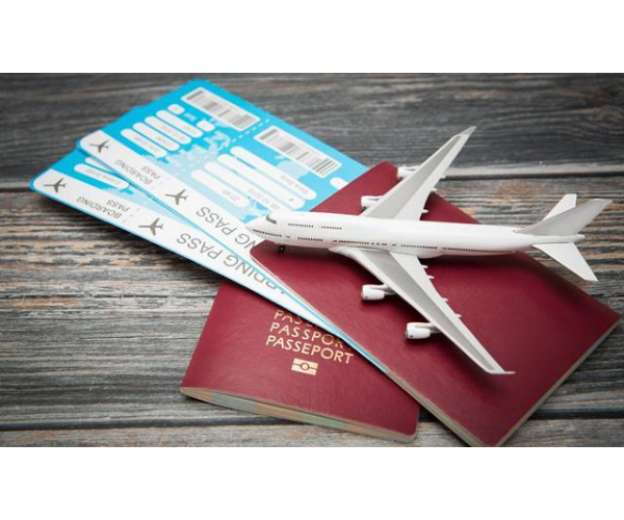- Home
- |
- About us
- |
- News and Events
- |
- Resources
- |
- Contact
- |
- Donate today
- Shop
Speaking to another amputee can make a real difference to your recovery and ease your concerns. We call this type of assistance Peer Support.
Following surgery, you will need time to recover. It is also a time to set goals about your journey ahead. Here, we help to guide you through the process to navigate your pathways forward.
Effectively managing your short and long term health will lead to better outcomes and prevent future problems.
Getting the right kind of prosthesis to suit your lifestyle needs and daily level of activity is important.
People are often concerned about the costs involved in getting a prosthesis. In Australia, there are a number of different funding schemes and it can be easy to get confused and to know what you are eligible for.
Travel

Before holidaying overseas, we're told – almost warned – to take out travel insurance to protect (as best we can, at least in financial terms) our belongings and our health.
Taking out a travel insurance policy isn’t hard and can usually be done at the same time you purchase airfares through a travel agent or online. Most policies aren’t that expensive either. For a few hundred dollars, you can usually obtain a policy that covers lost or stolen luggage, cancelled flights, and other unexpected holiday costs. You can expect these same policies to cover overseas hospital and medical expenses and even cover you for loss of income for a period and, in the worst-case scenario, make a payment to your family if you die.
It all sounds like the perfect way to have peace of mind as you head off on a fun-filled overseas holiday… but, what if it’s not that simple? Unfortunately, like most things insurance-related, the glossy front page of the policy or the poster in the travel agency often isn’t a true reflection of how the insurance company will consider any claim you might have to make. Is it to do with the fine print? Unfortunately, the answer is, "yes, it is!"

Most travel insurance policies won’t cover health conditions you have or have had, before you take out a policy.
Insurers call these 'pre-existing conditions,' and exclude them from coverage. This can depend on when your health condition arose and what type of condition you have. But even well-treated conditions that respond well to medication and, in the opinion of your treating doctor or specialist, are 'under control,' may still not be covered. Sometimes, even if the policy doesn’t specifically mention your health condition, it will contain a “catch-all” clause excluding health problems you were aware of or should reasonably have been aware of before you purchased the policy.
All is not lost, however. Even if the insurer won’t cover your health condition, that doesn’t mean you can’t still get cover for non-medical things, like cover for your luggage or financial protection should your holiday be in some way disrupted (depending, of course, on the cause of the disruption… disruption due to government or military action isn't generally covered. And let's not even talk about Covid!).
The reality is that when you buy travel insurance, you receive a policy document (often called a Product Disclosure Statement) that is filled with as many reasons for an insurance company not to pay out a claim, as there might be to pay out a claim.
The good news is that if your claim is rejected, you can question the insurance company's decision and successfully get it overturned. Insurance companies don't always get it right.
The law allows you six years to act from the date you are told about the insurer's decision to reject your claim, but it's best to act as soon as possible.
To dispute an insurance company’s decision, the first thing to do is get the rejection letter from the insurer in writing. This letter will explain the section of the policy that the insurance company is relying on to reject your claim. You can then write to them asking for their decision to be changed. To do this, you need to ask for your letter to be considered under the insurer’s internal dispute resolution procedures. This is called an IDR complaint letter. This is important!

In your letter, set out why the insurer’s decision is wrong and if you have any documents to support your claim, provide them in support (provide copies only, never provide originals). It is important to keep all of your dealings with the insurance company in writing, whether by email or traditional letter. Discussions had over the phone can be interpreted differently by different people and can create confusion down the track. Stay away from the phone where possible. Also, if you can, keep a file or diary of your dealings. Keep copies of all letters sent and received and make notes of any conversations you have (if you need to have conversations – see above regarding using the phone).
Once the insurer receives your "IDR letter", it has 30 days to review and reconsider its original decision under its internal review procedures. If the decision stays the same (if the insurer again rejects your claim), there are still steps you can take to challenge the decision that won't require you to appear in court or undergo days of questioning in a witness box by a King's Counsel! The next step is to lodge your matter with the Australian Financial Complaints Authority (AFCA). The AFCA is an independent umpire who will consider the arguments of both you and the insurance company and then determine who it thinks is right. The AFCA is a free process. Lodging your matter with the AFCA can be done quite easily online, or if you phone them, they will send you forms to fill out to start the dispute process. The AFCA's website is https://www.afca.org.au and their phone number is 1800 931 678.
It can take several months before the AFCA provides its decision, sometimes longer. If the AFCA decides the matter in your favour, the insurance company is bound by the decision. If the AFCA agrees with the insurance company, you do not have to accept the decision and you can still take the matter further.
The AFCA doesn’t always get it right, either (humans make the decisions there, too!). So, action can still be taken, but once the AFCA has made its decision, if you still want to continue with the dispute, you will need to consider issuing court proceedings. This is a process best discussed with a lawyer.
If the decision the insurance company has made is not to provide you with insurance because of a disability, the insurance company must be able to provide evidence that justifies the discrimination. This evidence must show, from previous claims or actuarial or statistical data, that providing insurance to you because of your disability or ill health would be an unreasonable risk. If they cannot provide this evidence, they can be accused of discrimination.
It is illegal in Australia to discriminate against somebody because of a disability and you are well within your rights to do something about it, and you should do something about it. If you believe the decision of an insurance company is discriminatory, you can ask for the decision to be reviewed by lodging a complaint with the Australian Human Rights Commission. You can contact the Commission through their website at www.humanrights.gov.au or by phoning them on 1300 656 419.
The immediate difficulty with disputing a discrimination decision is timing. Not many people (realistically, nobody at all) apply for travel insurance several months before their overseas trip to allow for time to pursue a complaint with the Australian Human Rights Commission! For this reason, it's easy to deduce that travel insurance companies are perhaps not held to account for some of the decisions they make not to provide insurance to people who have health problems or disabilities even though those problems are stable and are no more of a risk than a person without the health problem or disability. But, that is an issue beyond the scope of this article.

If you plan on travelling around Australia, you may not require any additional insurance cover for your prosthesis. Most funding bodies agree that if you take reasonable care to prevent damage, loss or theft of your device, then they will happily replace it for you.
The other thing to consider before taking out a travel insurance policy for your prosthesis is that you might find you already have cover for it as part of your house and contents insurance. This is worth checking. Contact your house and contents insurance provider and ask them.
Your prosthesis is a specialised piece of equipment, and taking out insurance for it alone could see you receive a premium invoice in the thousands of dollars. If your device is valued between $10K – 15K, and you receive a premium invoice for a similar amount is it worth it? Well, that decision is yours.
The best recommendation: look after your device. Don’t leave it poolside or on a beach unless you have someone to look after it.
Keep up to date with our latest news, events and information
